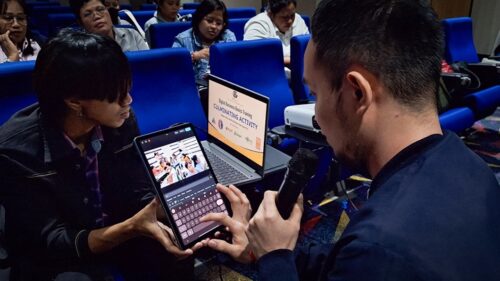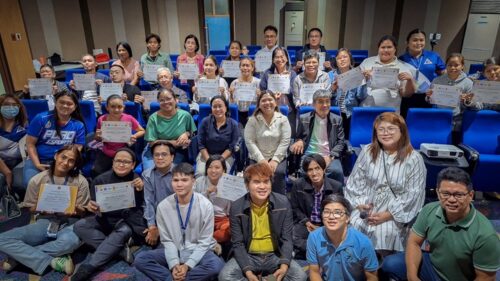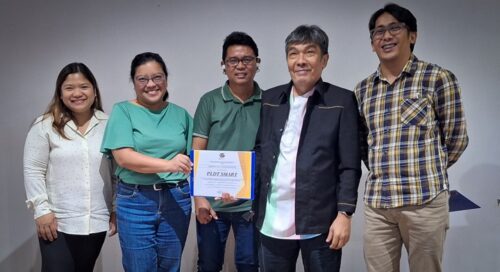 |
| Through digital business basics upskilling, PLDT and Smart help foster the participation of persons with disabilities in the digital economy. (Image Source: Orange Magazine TV/Smart Communications Inc.) |
A group of persons with disabilities in Quezon City are now skilled and more knowledgeable on new technologies to level up their existing businesses, while the aspiring entrepreneurs among them now know more about developing new businesses. PLDT and Smart Communications Inc. (Smart), in partnership and collaboration with Adaptive Technology for Rehabilitation, Integration, and Empowerment of the Visually Impaired (ATRIEV), NORFIL Foundation, and the Persons with Disability Affairs Office (PDAO) of Quezon City, successfully trained 21 participants from the city to enhance their digital skills and introduce them to business opportunities.
“A big part of PLDT’s mission is to ensure equitable access to technology and connectivity, enabling all Filipinos to leverage digital innovations to improve their lives. We hope that the initiative helped build their skills, boost their productivity, and foster their participation in the digital economy,” said PLDT and Smart Assistant Vice President and Head of Stakeholder Management Stephanie V. Orlino. The eight-day Digital Business Basics Training (DBBT) provided participants with the knowledge, skills, and attitude they need to manage their finances effectively, and start and run a successful business. The participants learned basic social media marketing and other critical information when starting a business such as fund sourcing, pricing, and costing. Additionally, the participants learned the basics of branding and identifying their target market with the use of various applications. The DBBT module also included a presentation of Maya Business, helping participants explore digital business payment solutions.
 |
 |
| Top: Organizers from PLDT, Smart, ATRIEV, NORFIL Foundation, and QC PDAO with the 21 graduates of the Digital Business Basics Training Bottom: ATRIEV Executive Director Antonio D. Llanes Jr. (2nd from right) awards the Certificate of Recognition to PLDT and Smart represented by Head of Stakeholder Management - Luzon Relations Joy Lapuz (2nd from left) and Smart's NCR Wireless Sales Manager Celestino Vii Trono Jr. (center) with Quezon City Persons with Disability Affairs Office (QC PDAO) Head Deborah C. Dacanay (1st from left) and ATRIEV Program Manager Ken Figueroa (1st from right). (Image Source: Orange Magazine TV/Smart Communications Inc.) |
QC PDAO Head Deborah Dacanay shared, “The Quezon City government fully supports Inclusion programs not only for persons with disabilities but for all QCitizens as well. We think that the DBBT will be very helpful for persons with disabilities, from preparing to start their business and, eventually, managing a sustainable enterprise. Linked by our shared passion to help improve the lives of persons with disabilities and their families, we are grateful to have supportive partners in PLDT and Smart.” “Even as we get older, it is still important to learn new technologies, for our own growth and as big help to improve our small business,” said 57-year old Rico Lanuza, one of the participants. Another participant, 39-year old Joel Angelo Gavino, is an entrepreneur who used to be an OFW, who experienced a lot of hardships with his disability. After the training, Joel said, “I’m very happy to be part of this eight-day training. I learned various digital tools that I used to think were hard to learn. With everyone now engaging through social media platforms, I am happy to have learned how to create my own Facebook page and just using my cellphone. Now I know I will be able to attract more customers to my store.”
This engagement with ATRIEV is part of PLDT and Smart’s much broader Inclusion, Diversity, Equity, Advocacy through Technology (IDEATe) program, which seeks to enable the successful participation of marginalized sectors in the digital economy. IDEATe also contributes to the achievement of the United Nations Sustainable Development Goals (UNSDG), including #8: Decent Work and Economic Growth and #10: Reduced Inequalities, by empowering and promoting the social, economic and political inclusion of all, including persons with disabilities.